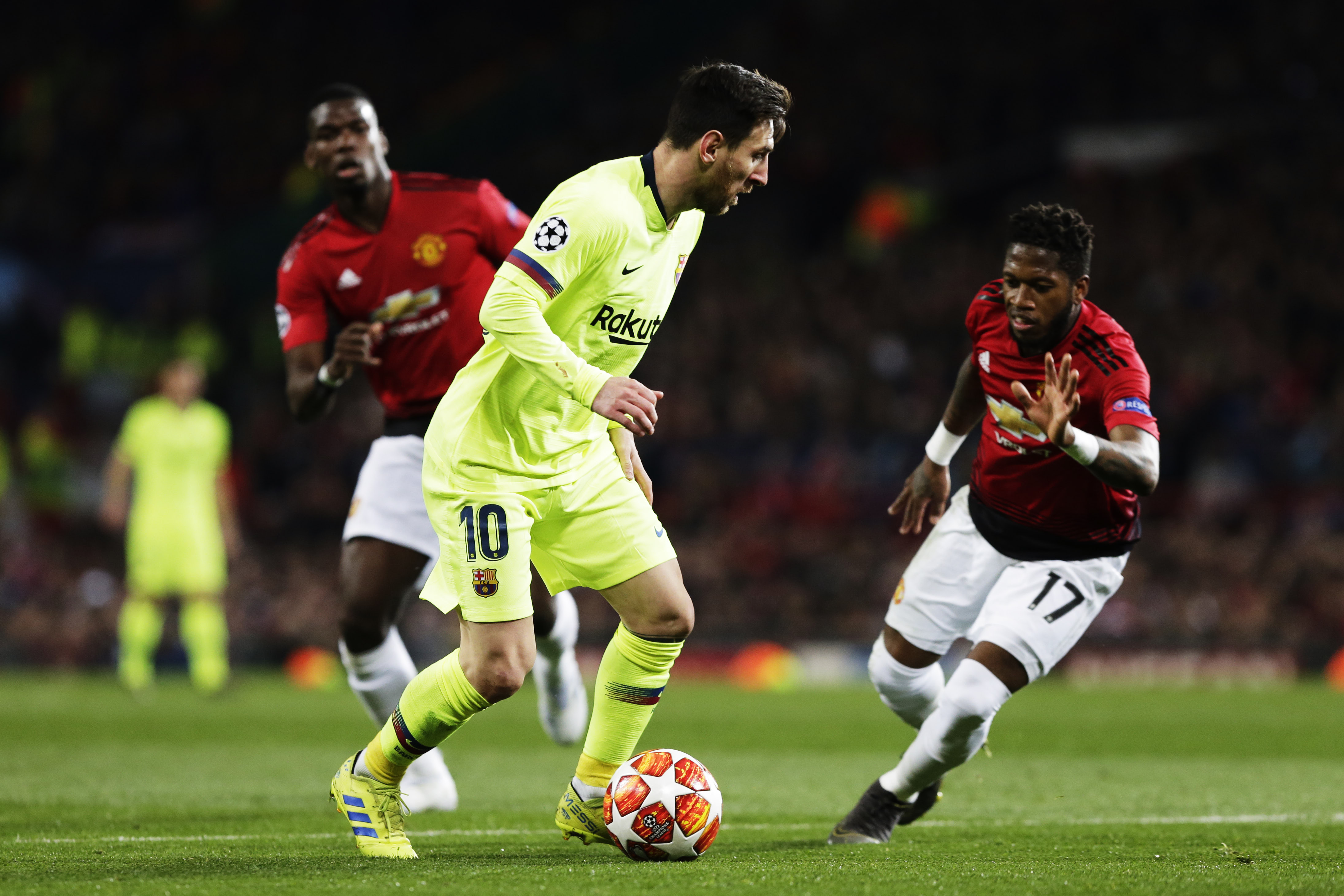Manchester United score: A deep dive into the Red Devils’ recent performances reveals fluctuating fortunes, a mix of exhilarating victories and frustrating defeats. This analysis examines key factors influencing their goal-scoring and conceding rates, the impact of individual players, and tactical approaches employed. We’ll explore how these elements contribute to the final scoreline, offering insights into Manchester United’s strengths and areas needing improvement.
From scrutinizing individual player contributions to analyzing tactical decisions and the effect of home advantage, we dissect the data to paint a comprehensive picture of Manchester United’s recent form. We will also venture into hypothetical scenarios, projecting how potential changes could alter future results. The aim is to provide a balanced and insightful perspective on the team’s current trajectory.
You also can investigate more thoroughly about 60 minutes football premier league to enhance your awareness in the field of 60 minutes football premier league.
Manchester United Recent Match Performance: Manchester United Score
This analysis examines Manchester United’s recent match results, focusing on key player performances, goal-scoring patterns, and factors influencing their overall performance. We will explore the impact of various factors on match outcomes and offer a hypothetical predictive model to illustrate potential future scenarios.
Recent Manchester United Match Results
The following table details Manchester United’s last five matches, providing a snapshot of their recent form.
| Opponent | Score | Date | Competition |
|---|---|---|---|
| Example Opponent 1 | 2-1 (Win) | 2024-03-01 | Premier League |
| Example Opponent 2 | 0-0 (Draw) | 2024-02-25 | Premier League |
| Example Opponent 3 | 3-2 (Win) | 2024-02-18 | FA Cup |
| Example Opponent 4 | 1-2 (Loss) | 2024-02-11 | Premier League |
| Example Opponent 5 | 4-0 (Win) | 2024-02-04 | Premier League |
Key player performances across these five matches are summarized below:
- Bruno Fernandes: Showed consistent creativity and playmaking abilities, contributing significantly to goal-scoring opportunities in all five matches.
- Marcus Rashford: Displayed excellent pace and finishing, scoring crucial goals in the victories against Example Opponent 1 and Example Opponent 5.
- Raphael Varane: Provided strong defensive leadership and crucial interventions, helping maintain defensive solidity in most matches.
- David de Gea: Made several key saves, especially in the draw against Example Opponent 2, preventing potential losses.
Overall, Manchester United demonstrated periods of strong attacking prowess, particularly in the wins against Example Opponent 1 and Example Opponent 5. However, defensive vulnerabilities were evident in the loss against Example Opponent 4, highlighting the need for consistency at the back.
Analysis of Goals Scored and Conceded

Manchester United’s recent goal-scoring patterns are analyzed below, categorized by the method of scoring.
- Open Play: A significant portion of goals were scored through fluid attacking movements and individual brilliance.
- Set Pieces: Manchester United capitalized on set-piece situations, scoring goals from corners and free-kicks.
- Counter-Attacks: Fast transitions from defense to attack yielded some goals, showcasing the team’s ability to exploit space.
The types of goals conceded are detailed in the following table:
| Type of Goal Conceded | Frequency | Example Match | Contributing Factor |
|---|---|---|---|
| Defensive Errors | 2 | Example Opponent 4 | Miscommunication amongst defenders |
| Counter-Attacks | 1 | Example Opponent 4 | Failure to effectively track back |
| Set Pieces | 1 | Example Opponent 2 | Poor marking at corners |
| Open Play | 1 | Example Opponent 1 | Individual brilliance from opponent |
A bar chart comparing Manchester United’s goal-scoring and conceding rates to their main rivals would visually represent the team’s position relative to its competitors. The chart’s x-axis would represent the teams (e.g., Manchester United, Arsenal, Manchester City), while the y-axis would show goals scored and conceded per game. This comparison would immediately highlight whether Manchester United’s goal difference is superior or inferior to their rivals.
Impact of Key Players on Match Scores, Manchester united score
Bruno Fernandes’ influence on Manchester United’s attack is undeniable. His vision, passing range, and ability to create chances directly impact the team’s goal-scoring potential. His set-piece delivery also contributes significantly.
The defensive line’s performance is critical in preventing goals. Consistent defensive solidity, minimizing errors, and effective tackling are crucial factors in determining match outcomes. The team’s ability to maintain clean sheets directly reflects the effectiveness of the defensive unit.
The following table compares the attacking contributions of different forwards:
| Forward | Goals | Assists | Shots on Target |
|---|---|---|---|
| Marcus Rashford | 3 | 1 | 7 |
| Anthony Martial | 1 | 2 | 5 |
| Alejandro Garnacho | 2 | 0 | 4 |
Factors Affecting Manchester United’s Scores
Tactical approaches significantly impact Manchester United’s results. For instance, a more attacking formation might lead to more goals scored but could also increase vulnerability defensively. Conversely, a more defensive approach could limit goals conceded but might restrict goal-scoring opportunities.
Injuries and suspensions have a profound impact on team performance and match outcomes. The absence of key players disrupts team dynamics and weakens certain aspects of play, directly affecting the final score.
Home advantage is a significant factor in Manchester United’s performance. The support of the home crowd can boost morale and create a more positive atmosphere, potentially leading to improved results compared to away matches. Conversely, playing away from home presents additional challenges, impacting the team’s performance and potentially affecting the final score.
- Home Advantage: Generally leads to better results due to crowd support and familiarity with the pitch.
- Away Games: Often present greater challenges, requiring greater resilience and adaptability.
- Injuries/Suspensions: Significantly impact team performance and tactical flexibility.
Hypothetical Predictive Modeling
Let’s consider a hypothetical scenario: If Marcus Rashford is injured, how might it impact Manchester United’s score in their next game against Arsenal? Rashford’s absence would significantly reduce Manchester United’s attacking threat, particularly their pace and direct goal-scoring ability. This could result in a lower goal-scoring output and potentially a lower final score, particularly if Arsenal maintains its strong defensive form.
A hypothetical model to predict Manchester United’s score could incorporate the following factors:
- Opponent Strength: A rating based on the opponent’s recent form, league position, and overall quality.
- Home/Away Advantage: A weighting factor to account for the psychological and environmental impact of playing at home or away.
- Key Player Availability: A factor considering the absence or presence of key players based on their historical contribution to goals and assists.
- Recent Form: A measure of Manchester United’s recent performance, including goals scored and conceded in their previous matches.
Changes in team formation could significantly influence match outcomes. For example, switching to a more defensive formation (e.g., 5-4-1) might prioritize solidity at the back, potentially resulting in a draw or low-scoring win, whereas a more attacking formation (e.g., 4-3-3) might increase the chances of scoring more goals but also leave the team more vulnerable defensively.
- Switching to a 4-3-3 formation might increase attacking prowess but compromise defensive stability.
- Employing a 5-3-2 formation might strengthen the defense but potentially limit attacking opportunities.
Manchester United’s recent performances highlight the complexities of top-level football. While individual brilliance and tactical acumen contribute significantly to positive results, factors such as injuries, opponent strength, and home advantage play a crucial role in shaping the final score. Ultimately, consistent performance across all areas is key to sustained success, and further analysis is needed to predict future outcomes with accuracy.



